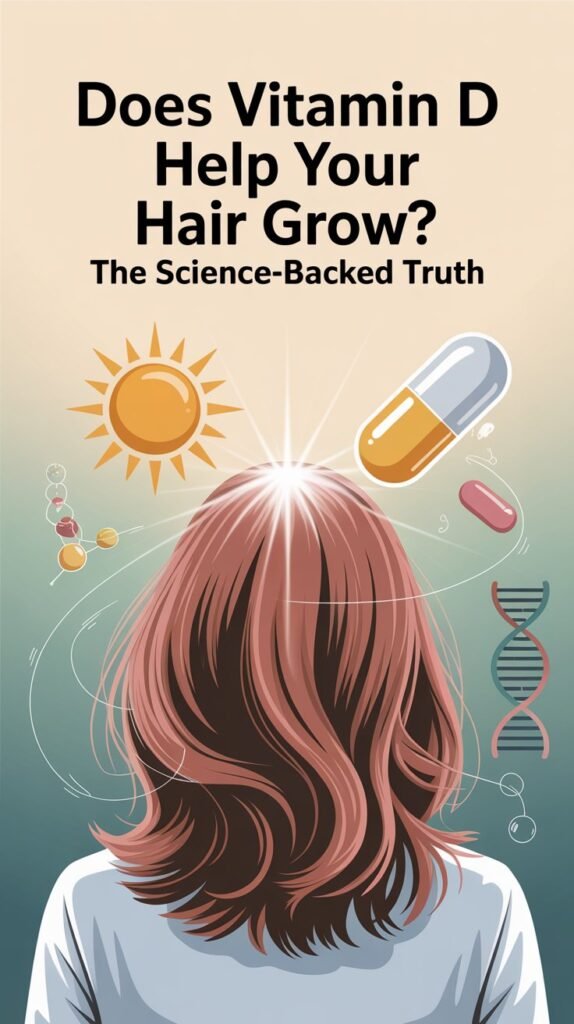Address
AVSSO 2242 SE 171st AVE Portland Oregon USA 97233
Work Hours
Monday to Friday: 7AM - 7PM
Weekend: 10AM - 5PM
Address
AVSSO 2242 SE 171st AVE Portland Oregon USA 97233
Work Hours
Monday to Friday: 7AM - 7PM
Weekend: 10AM - 5PM
Research confirms vitamin D plays a crucial role in hair health. It activates hair follicle receptors, stimulating growth cycles and preventing excessive shedding. Studies link deficiency to alopecia, thinning hair, and slow regrowth.
Vitamin D supports keratinocyte function (cells that produce hair) and reduces follicle inflammation. While sunlight is the best source, supplements and vitamin D-rich.
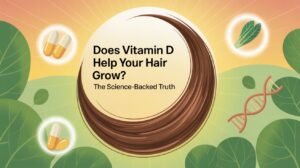
Hair loss and thinning hair are common concerns affecting millions worldwide. While genetics, stress, and hormonal imbalances play significant roles, nutritional deficiencies—especially vitamin D deficiency—are increasingly recognized as a key factor. But does vitamin D help your hair grow?
In this comprehensive guide, we’ll explore:
By the end, you’ll understand whether boosting your vitamin D levels can lead to stronger, faster-growing hair—and how to do it effectively.
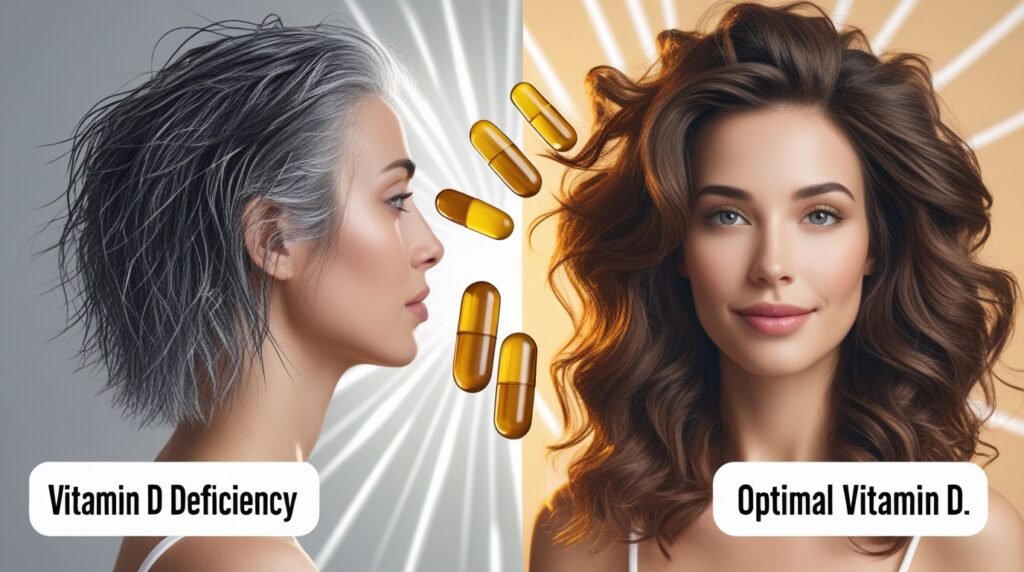
Vitamin D is a fat-soluble vitamin that functions like a hormone in the body. Unlike other vitamins, it can be synthesized by the skin when exposed to sunlight (UVB rays). It’s also obtained through certain foods and supplements.
Since hair follicles are among the fastest-growing cells in the body, vitamin D’s role in cell regeneration makes it crucial for hair growth.
Research suggests that vitamin D receptors (VDRs) in hair follicles play a critical role in the hair growth cycle. These receptors help regulate:
These findings suggest that adequate vitamin D levels may prevent hair loss and encourage regrowth.

If you suspect a deficiency, a blood test (25-hydroxy vitamin D) can confirm your levels.
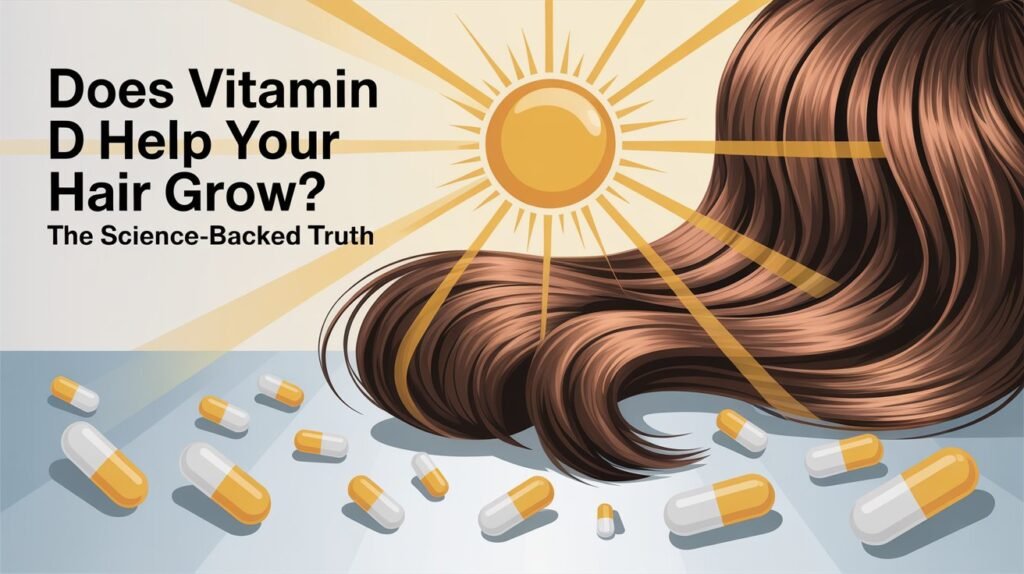
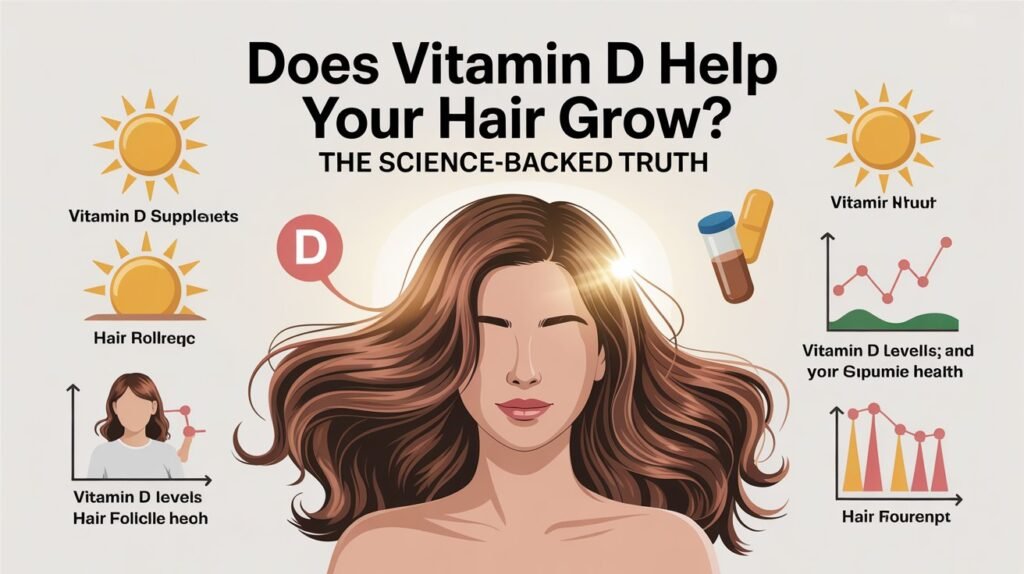
While vitamin D is crucial, hair growth depends on multiple nutrients, including:
A balanced diet + vitamin D optimization provides the best results.
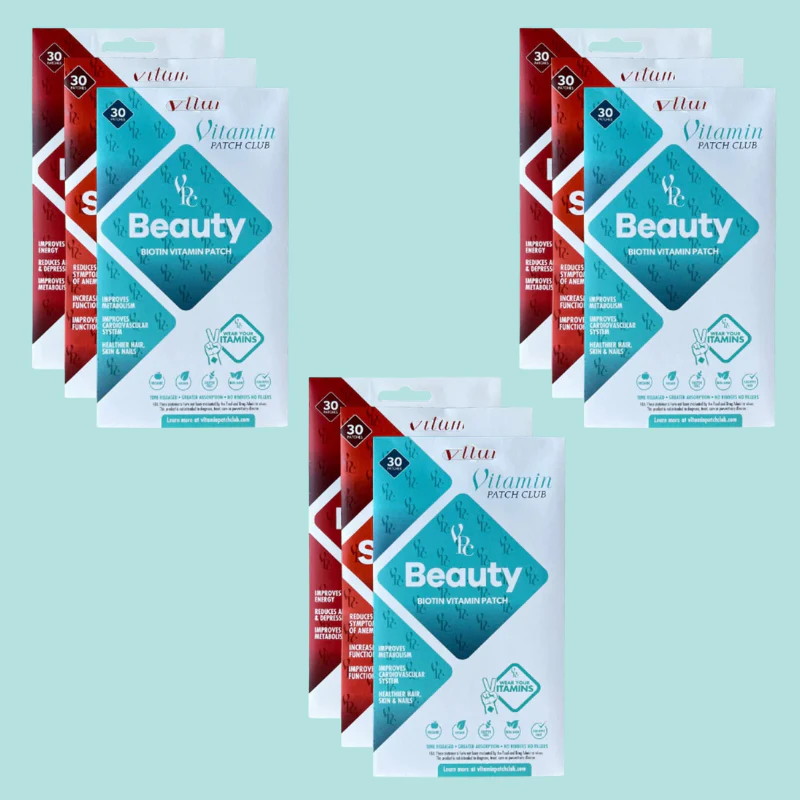
Yes! Scientific evidence confirms that vitamin D plays a vital role in hair follicle health, and deficiency can lead to hair thinning and shedding. By optimizing vitamin D levels through sunlight, diet, or supplements—along with other key nutrients—you may see improved hair thickness, reduced shedding, and faster growth.
If you’re experiencing significant hair loss, consult a doctor to check for deficiencies and rule out other causes.
